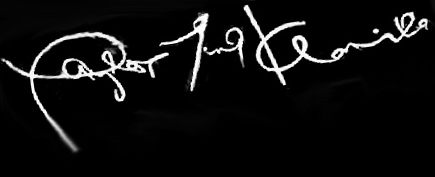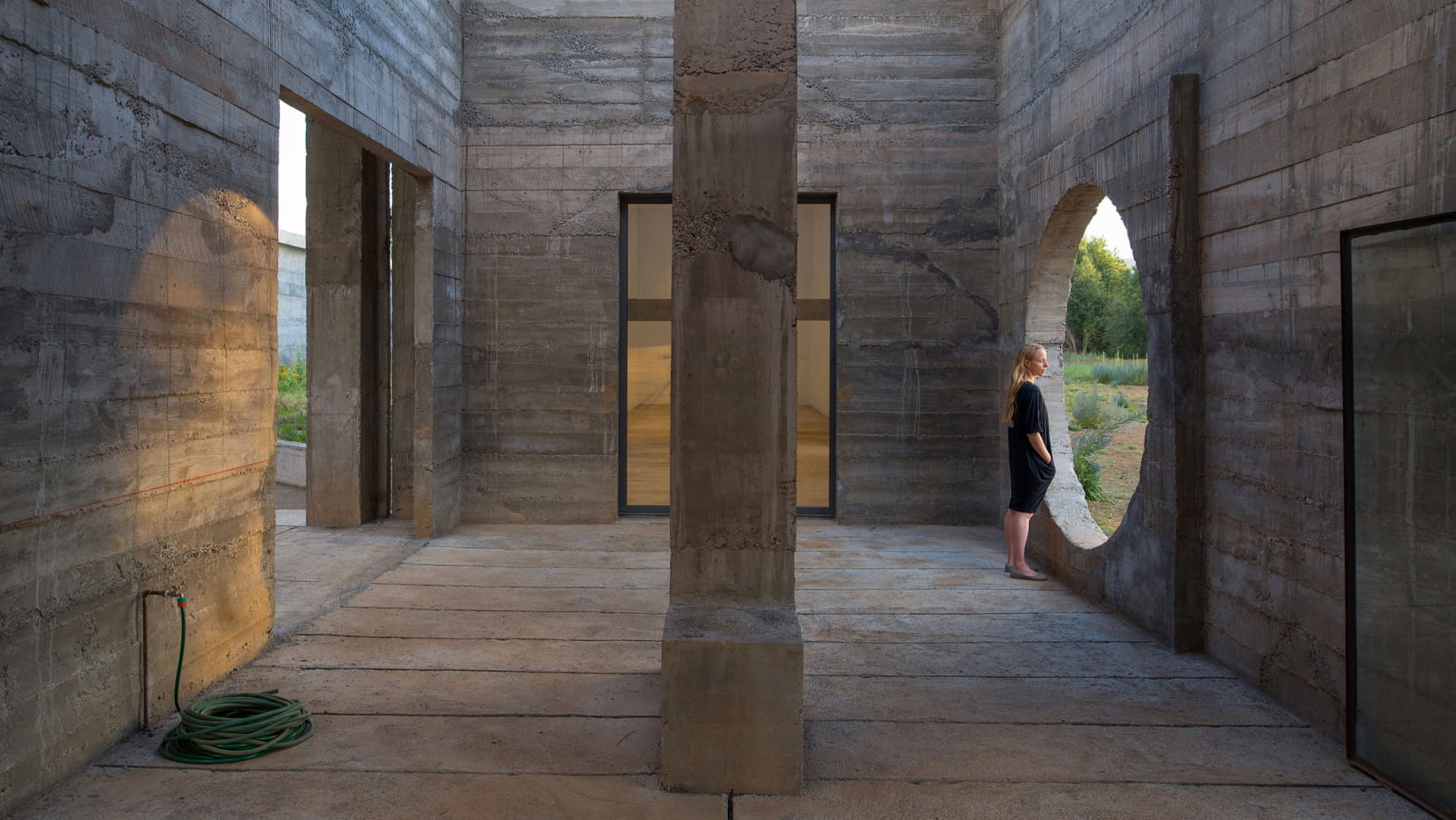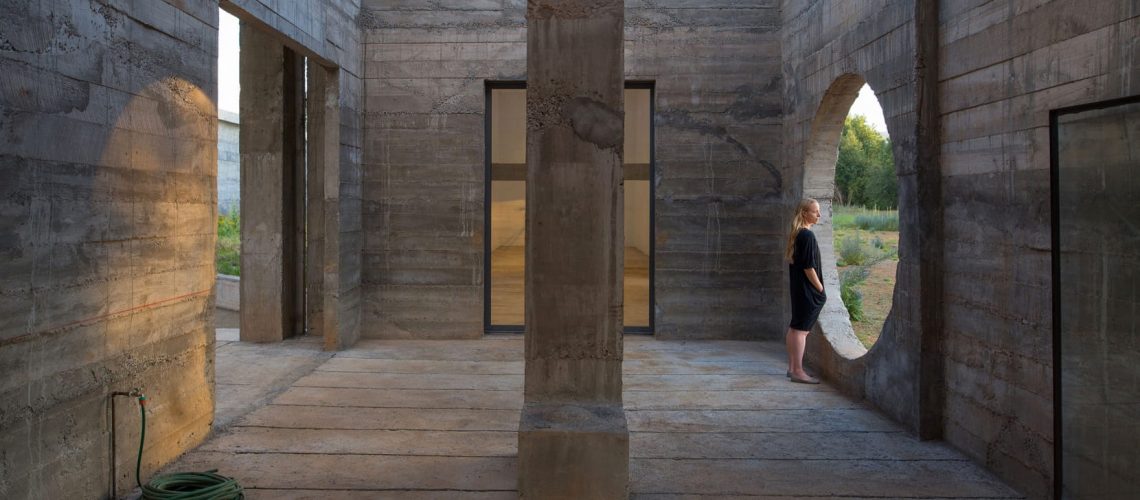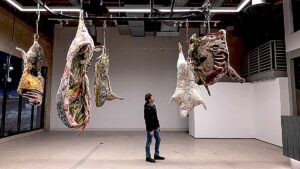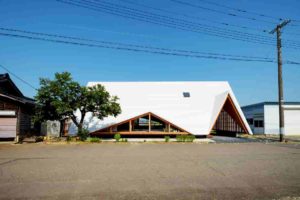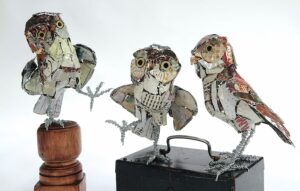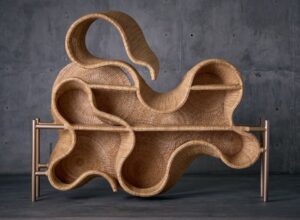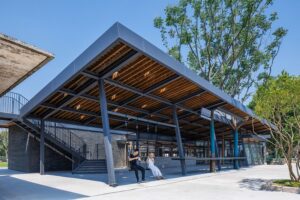Luna House: Pezo Von Ellrichshausen’s Home/Studio In The Chilean Countryside
Located at the foot of the Andes Mountains in Santa Lucia Alto in southern Chile, the fortress-like compound that architects Mauricio Pezo and Sofia von Ellrichshausen call their home base defies first impressions. What at first glance appears like a monumental concrete edifice is in fact a group of twelve buildings arranged in a grid around four courtyards. Featuring a sequence of distinct spaces that range from intimate, to grand to semi-open, the self-commissioned structure brings together living quarters, workspaces and exhibition spaces that blur the lines between private and public. “Saying that this collection of concrete blocks is a house would be too simple”, the duo explains; yet “saying that it is a museum would be too humble”.
Named Luna House, the project exemplifies the signature style of the duo’s Concepción-based award-winning architectural practice Pezo von Ellrichshausen, namely a brutalist-meets-minimalist language of bold, geometric forms, clean-cut lines and exposed concrete. Harmoniously nestled amid the region’s forested foothills, the building is a much a rural retreat as it is a cultural hub where the production and display of art and architecture goes hand in hand with communion with nature.
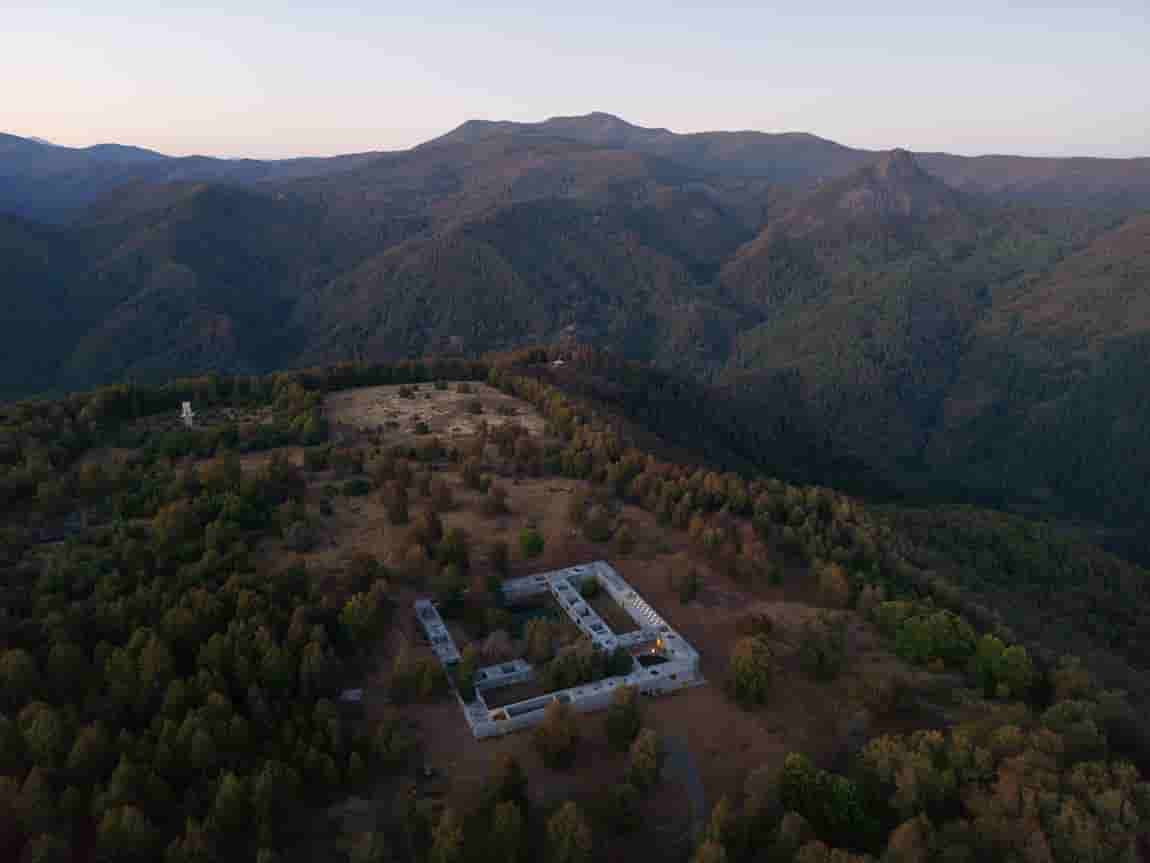
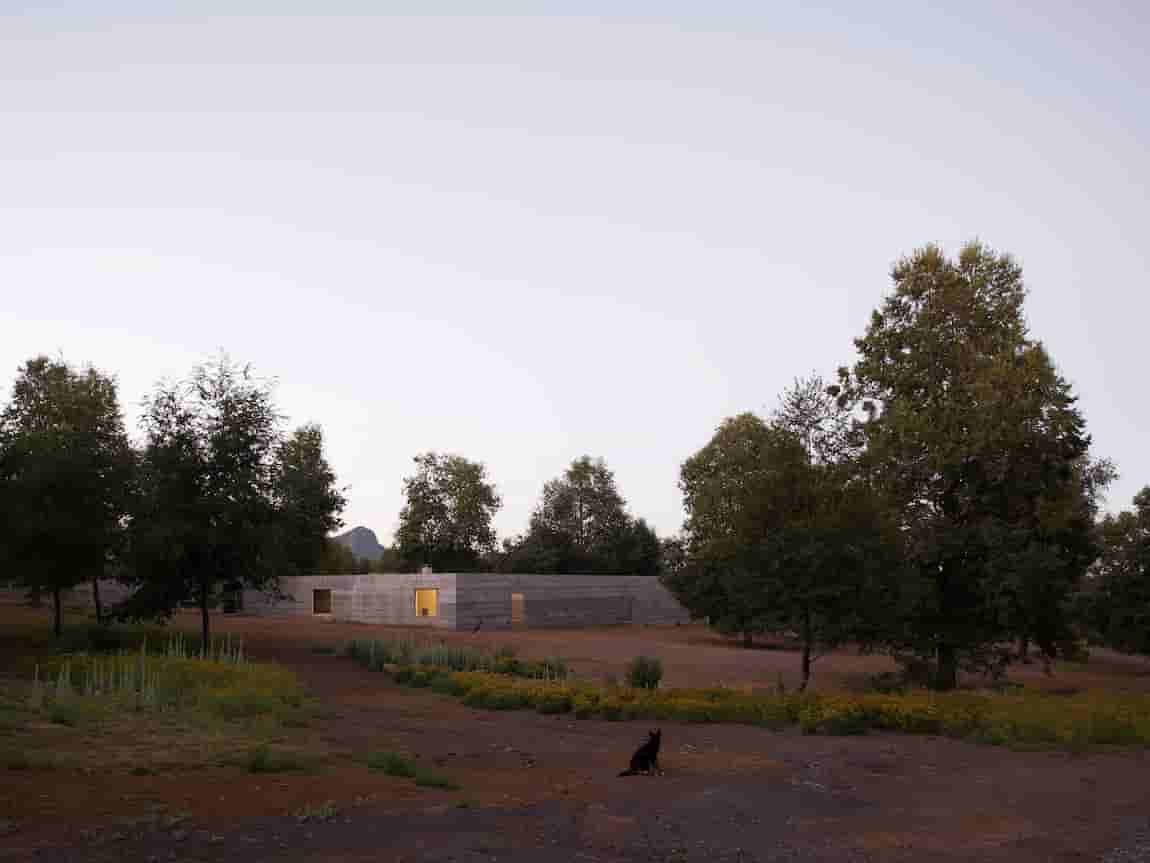
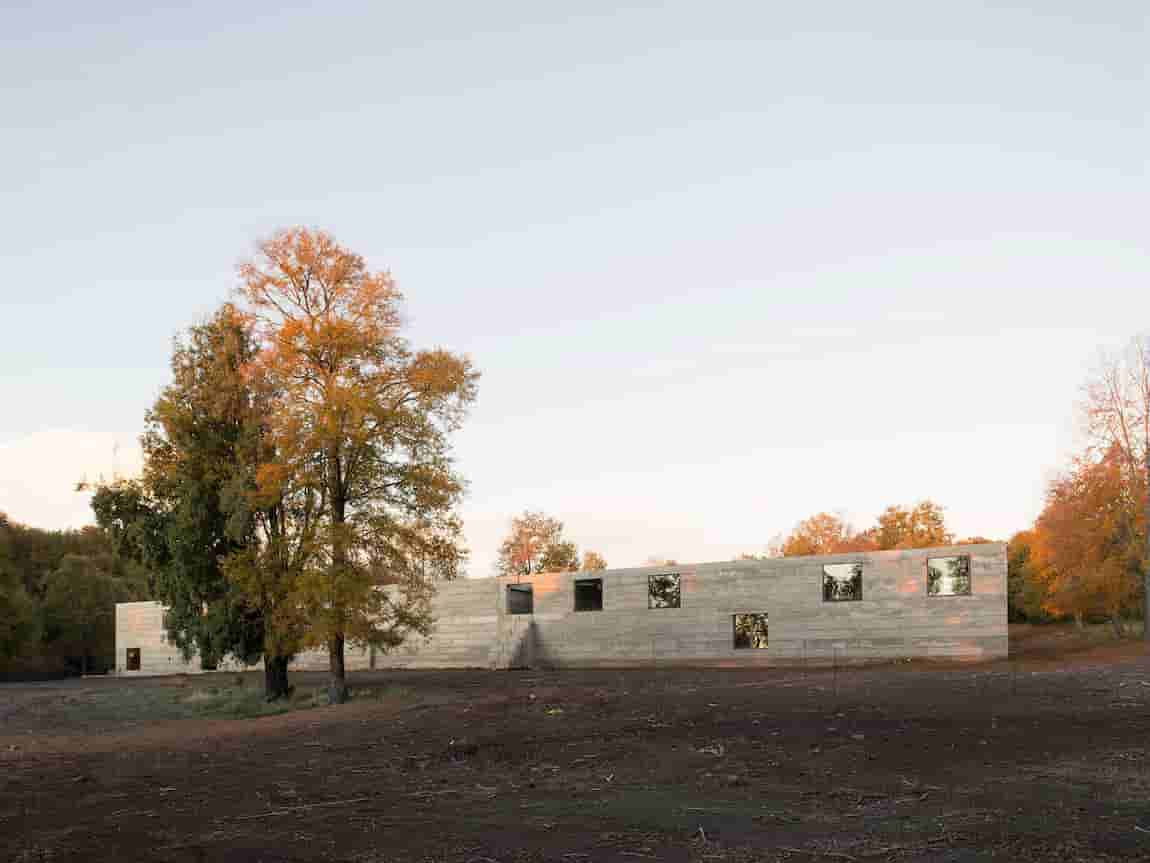
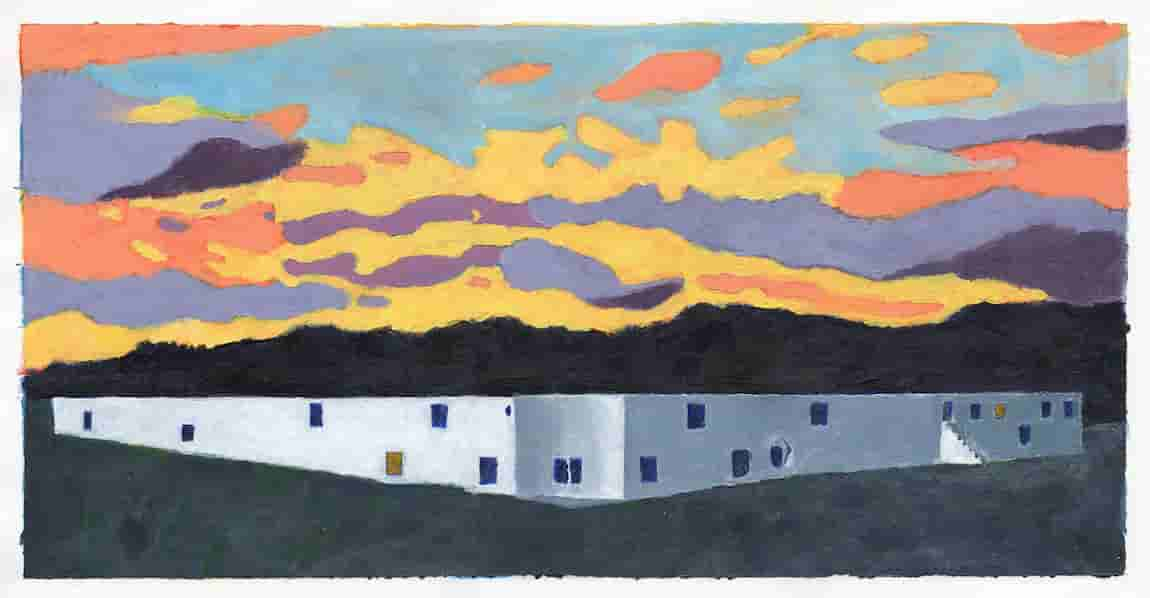
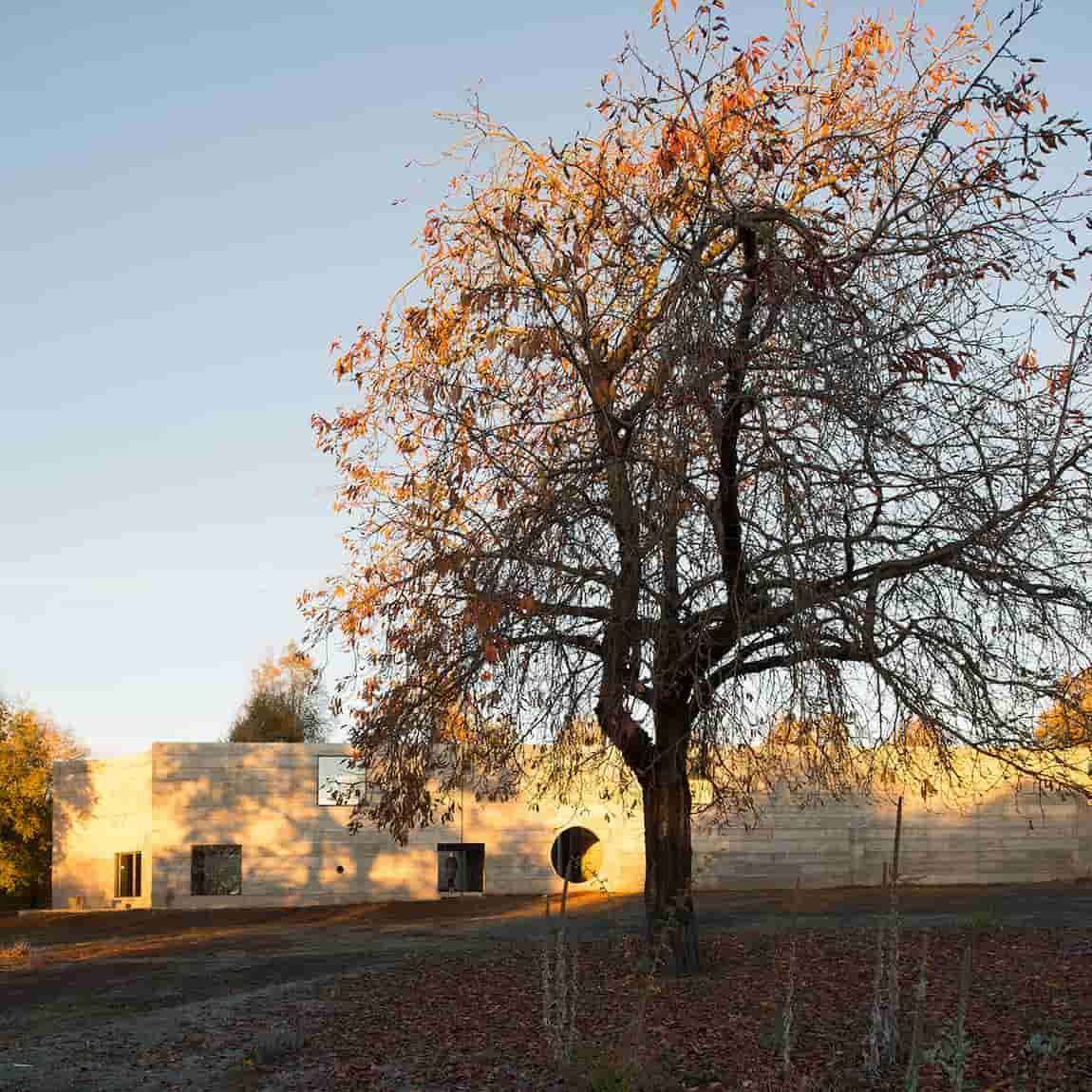
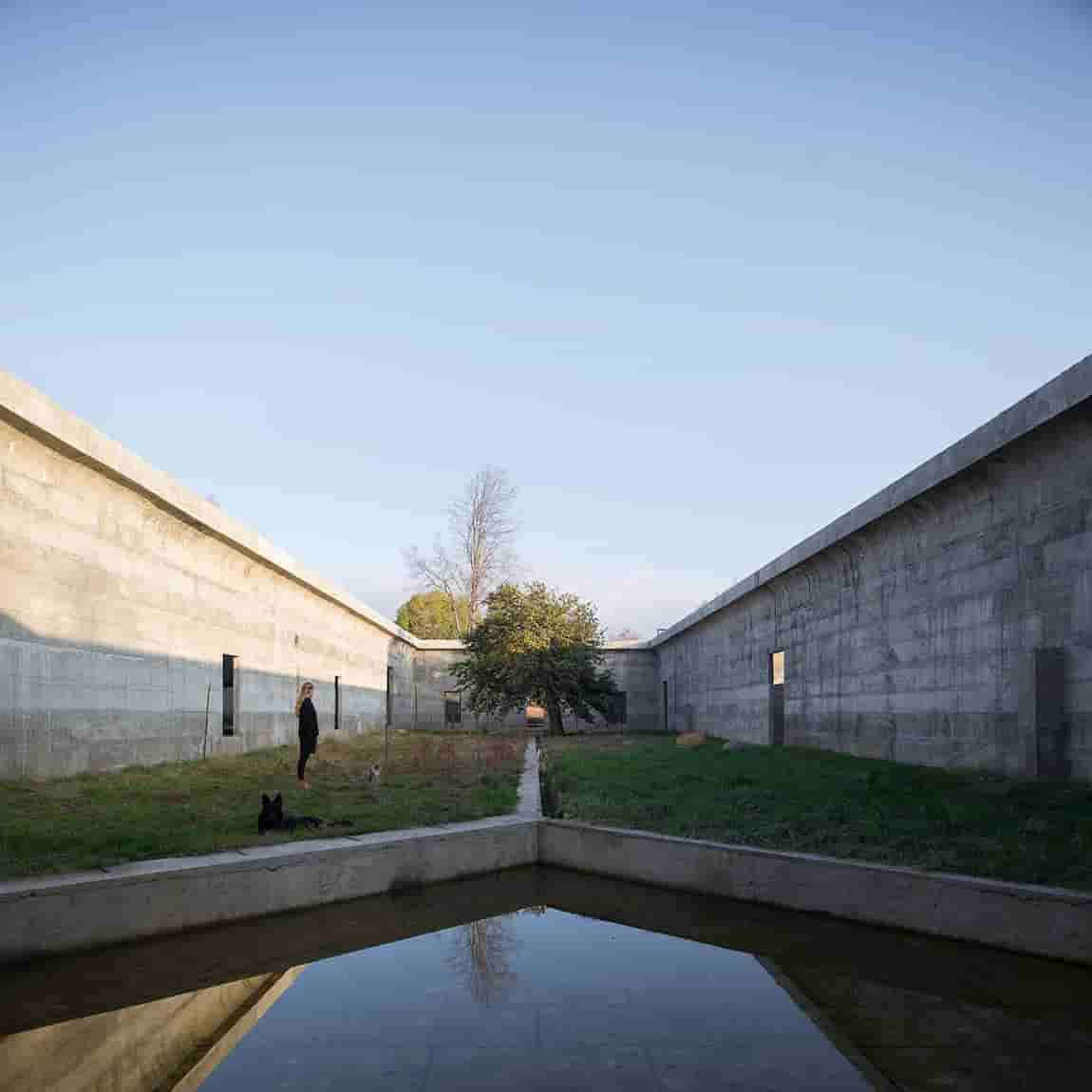
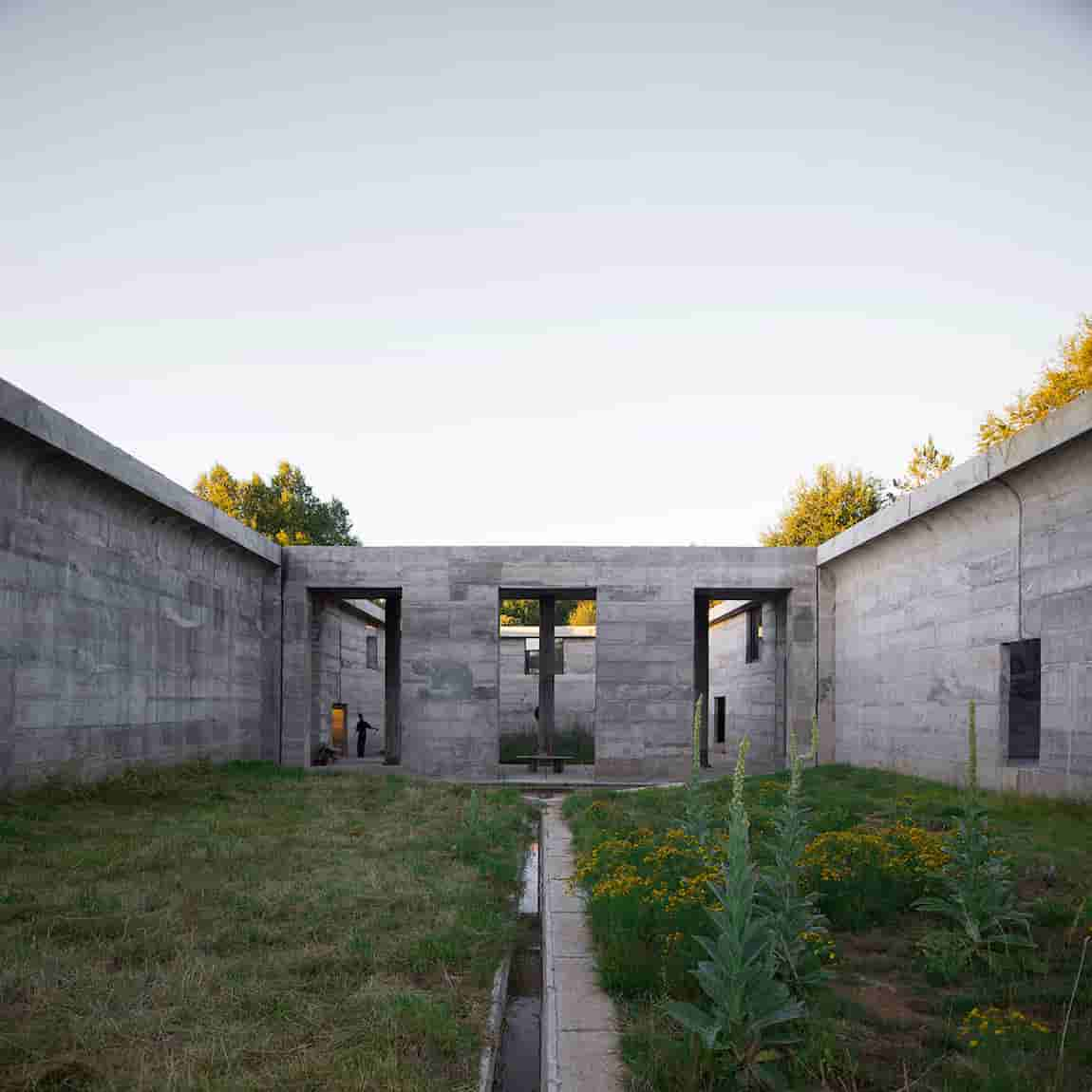
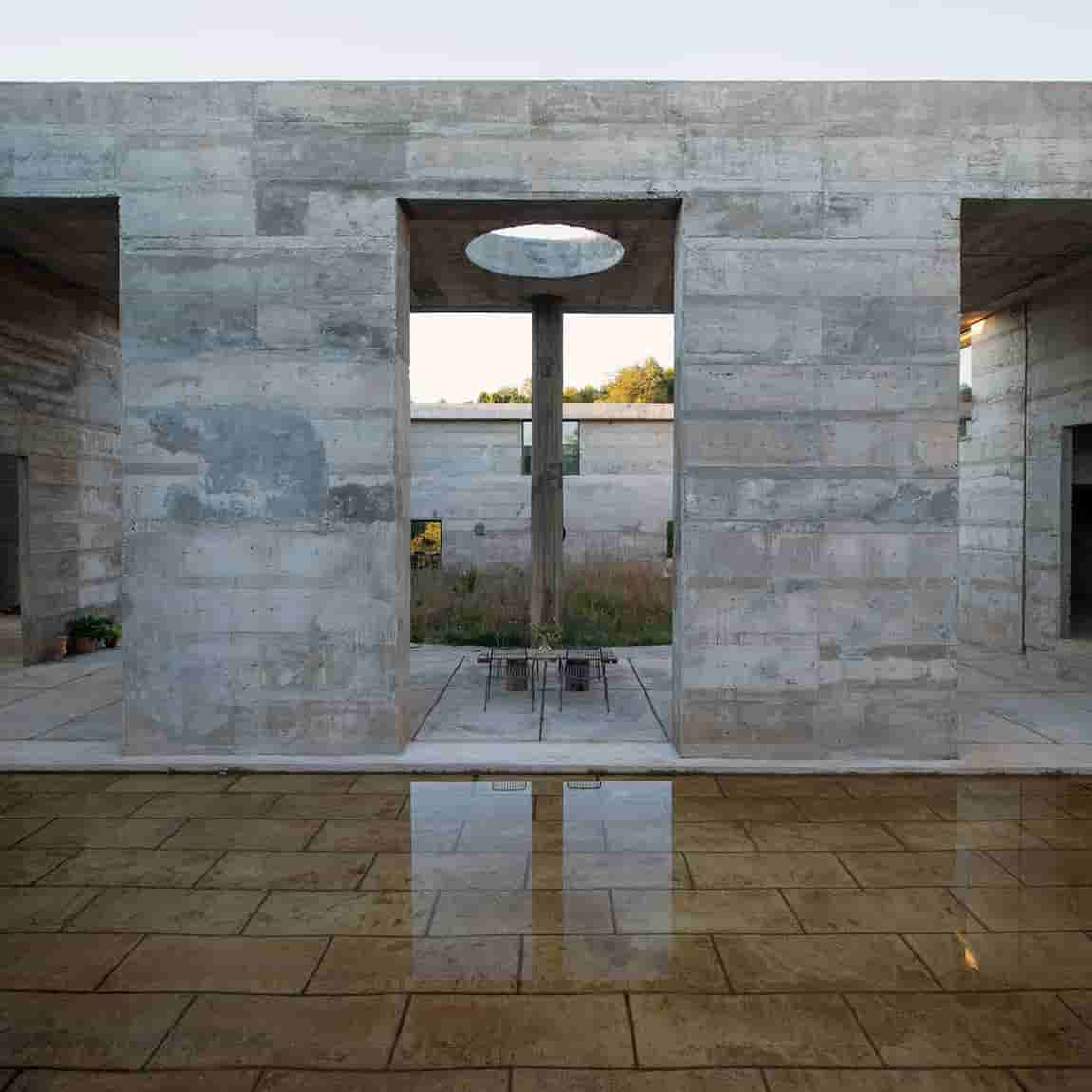
▎Luna House Each Of Which Has Its Own Distinct Features
Drawing inspiration from the idea of the cloister, the building’s square footprint frames a piece of the natural landscape that has been divided into four courtyards by the superimposition of an asymmetrical cross-shape, each of which has its own distinct features, including a circular flower garden in the smallest one, and a reflecting pond in the largest – Luna House takes its name from the latter which is equivalent to the size of a bullring, called “medialuna” in Chilean rural tradition.
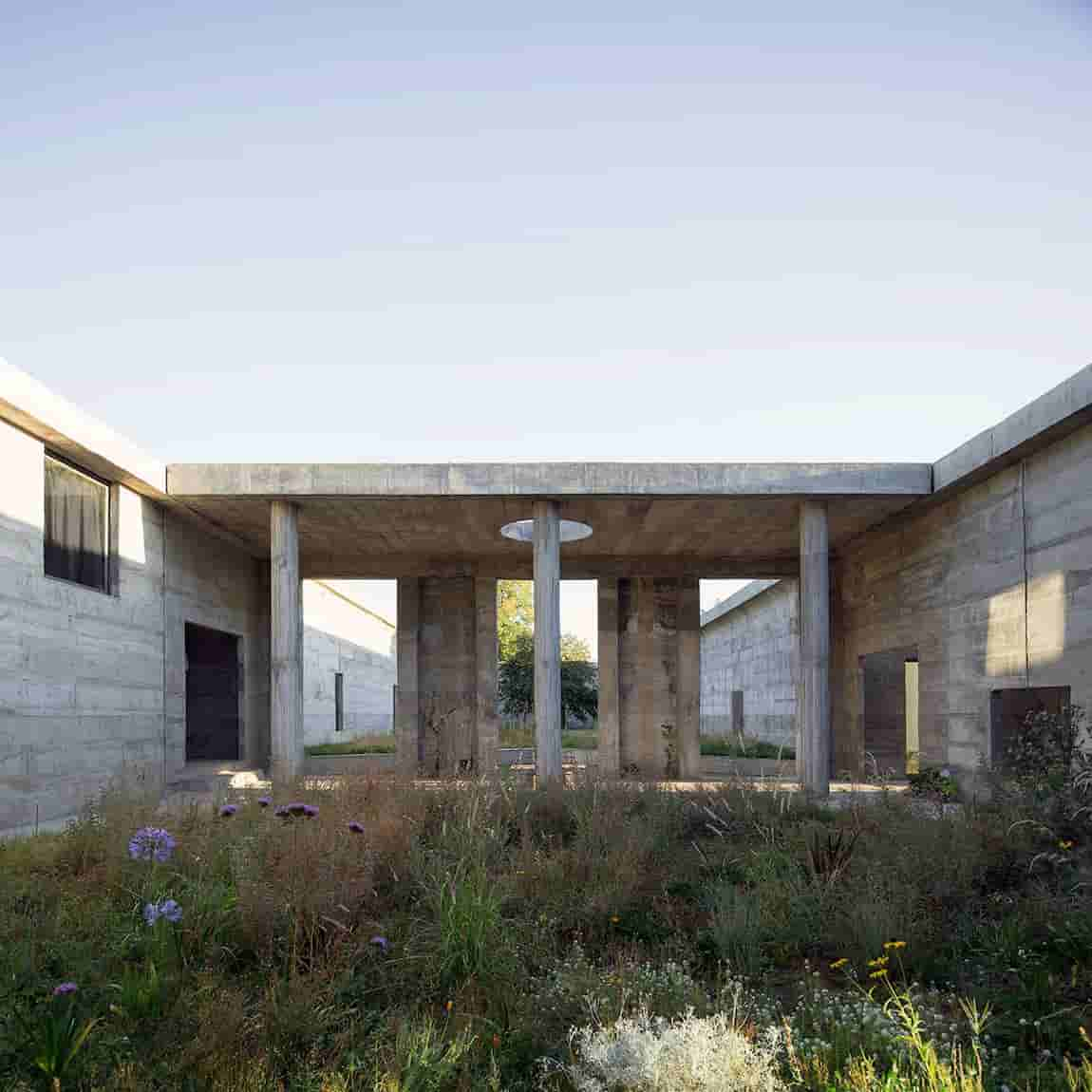
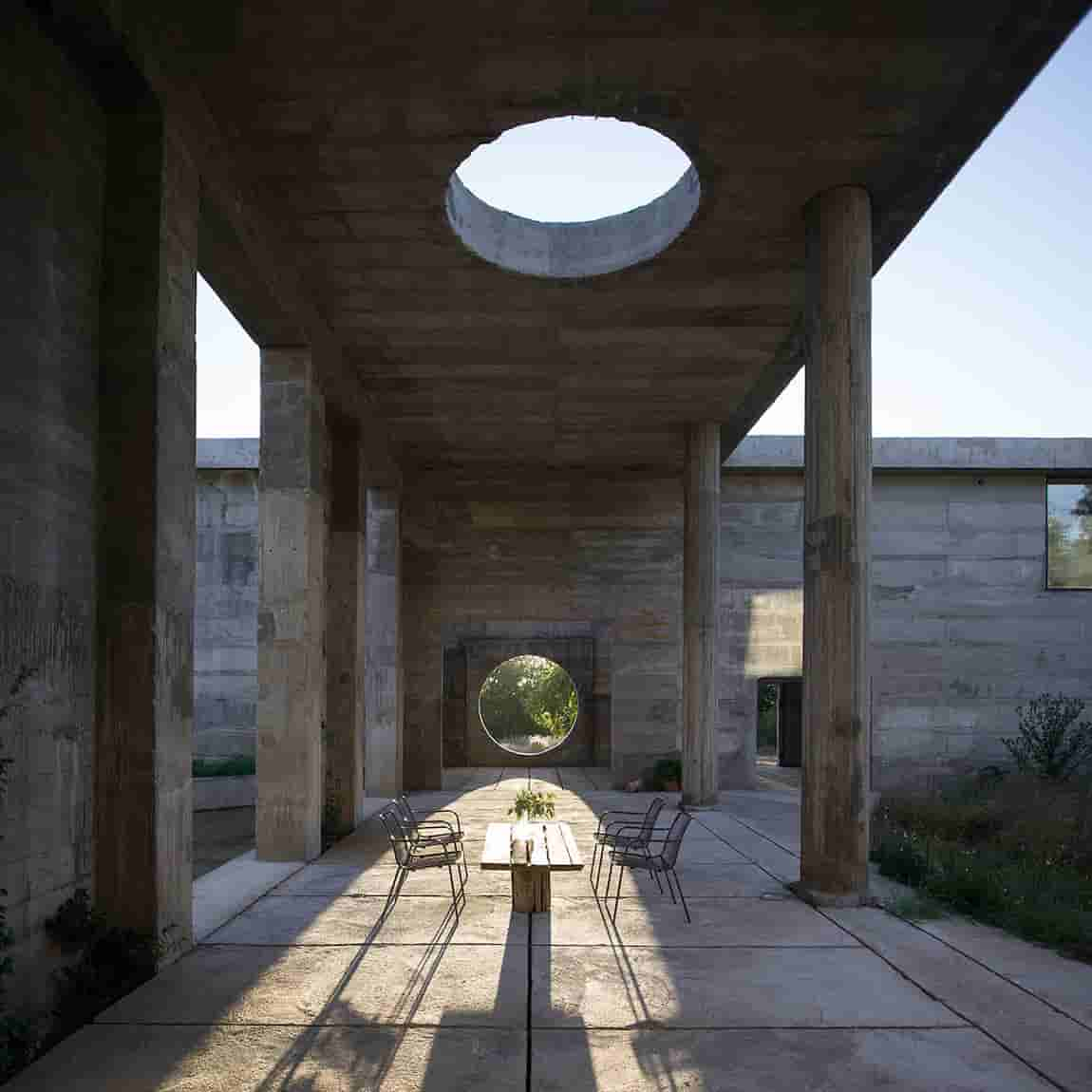
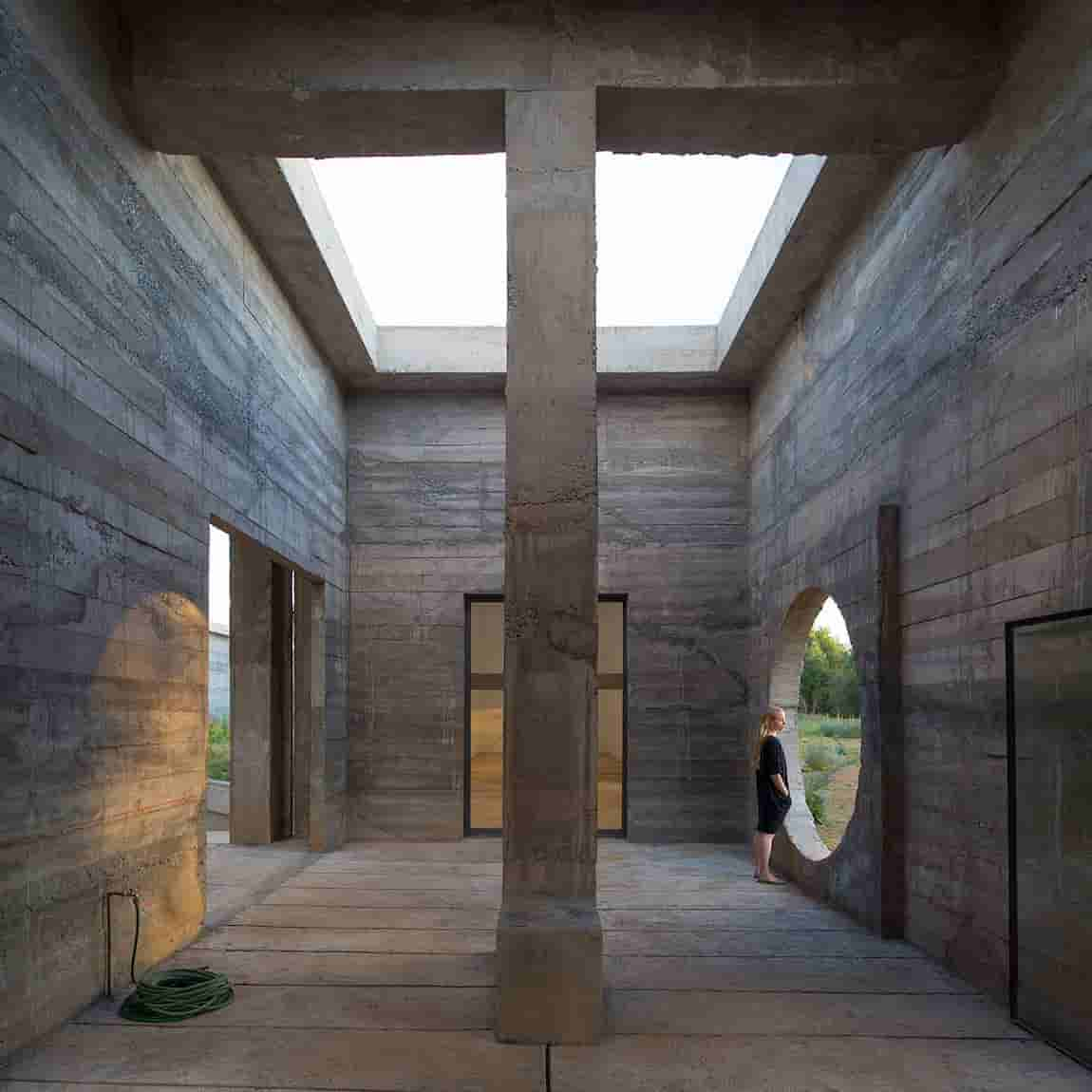
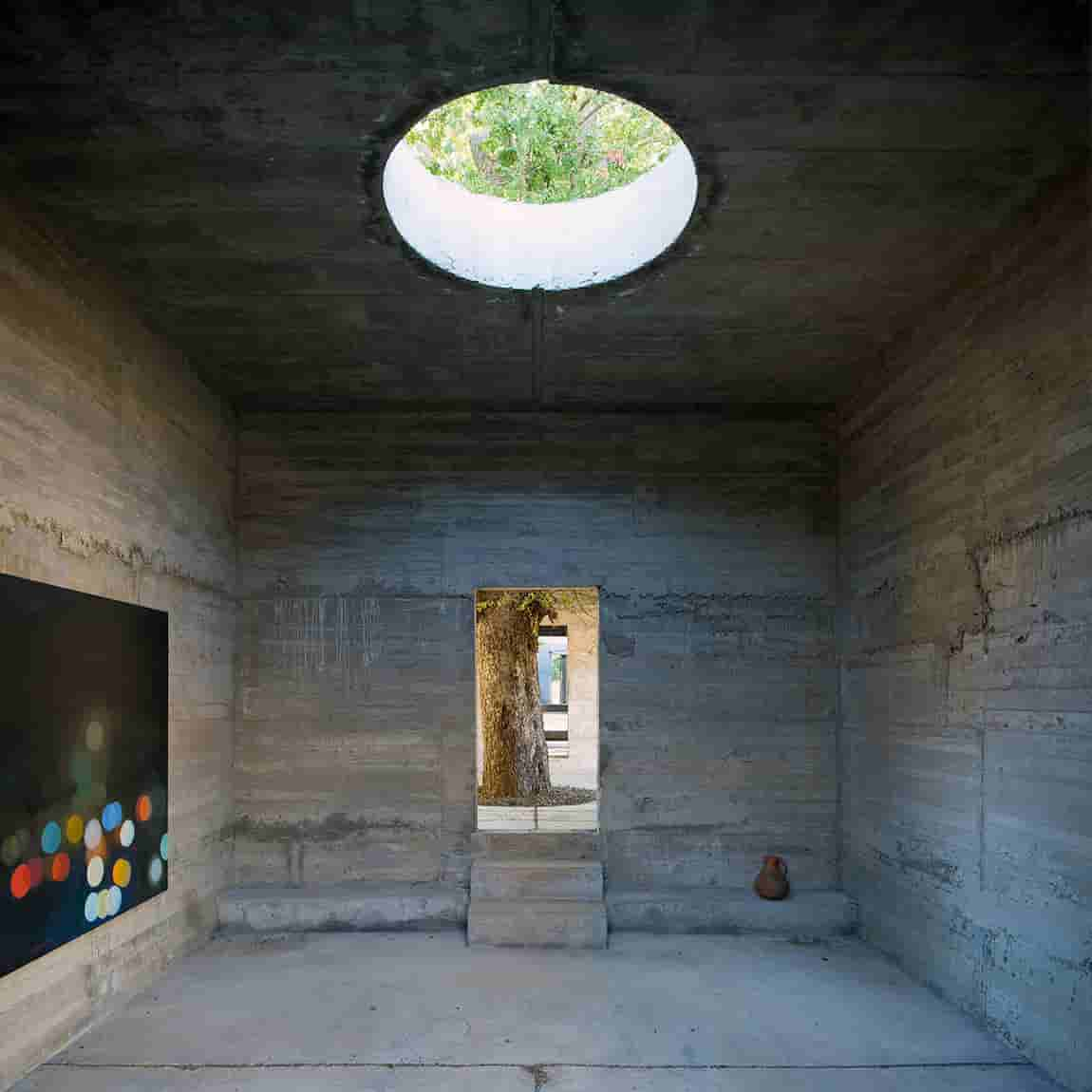
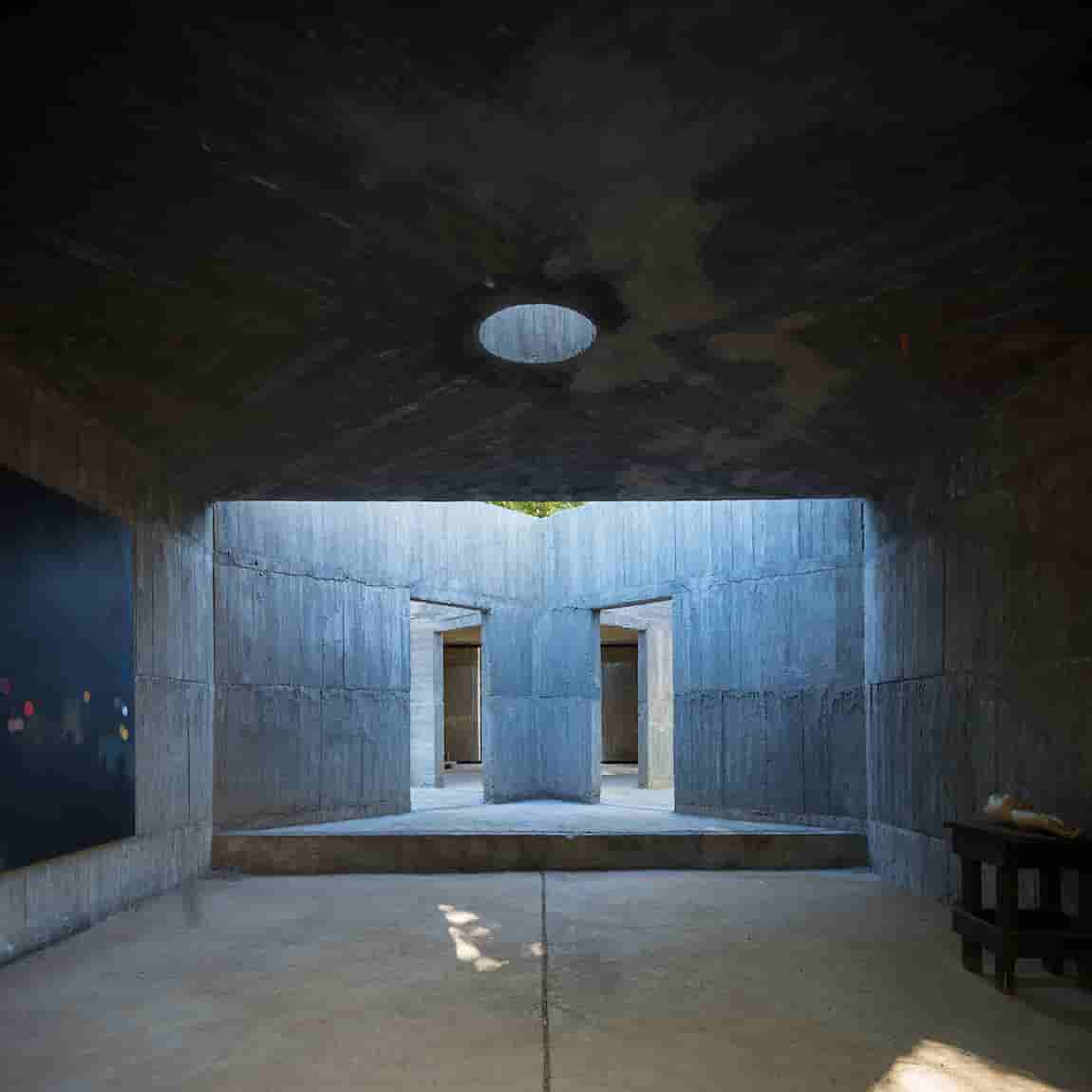
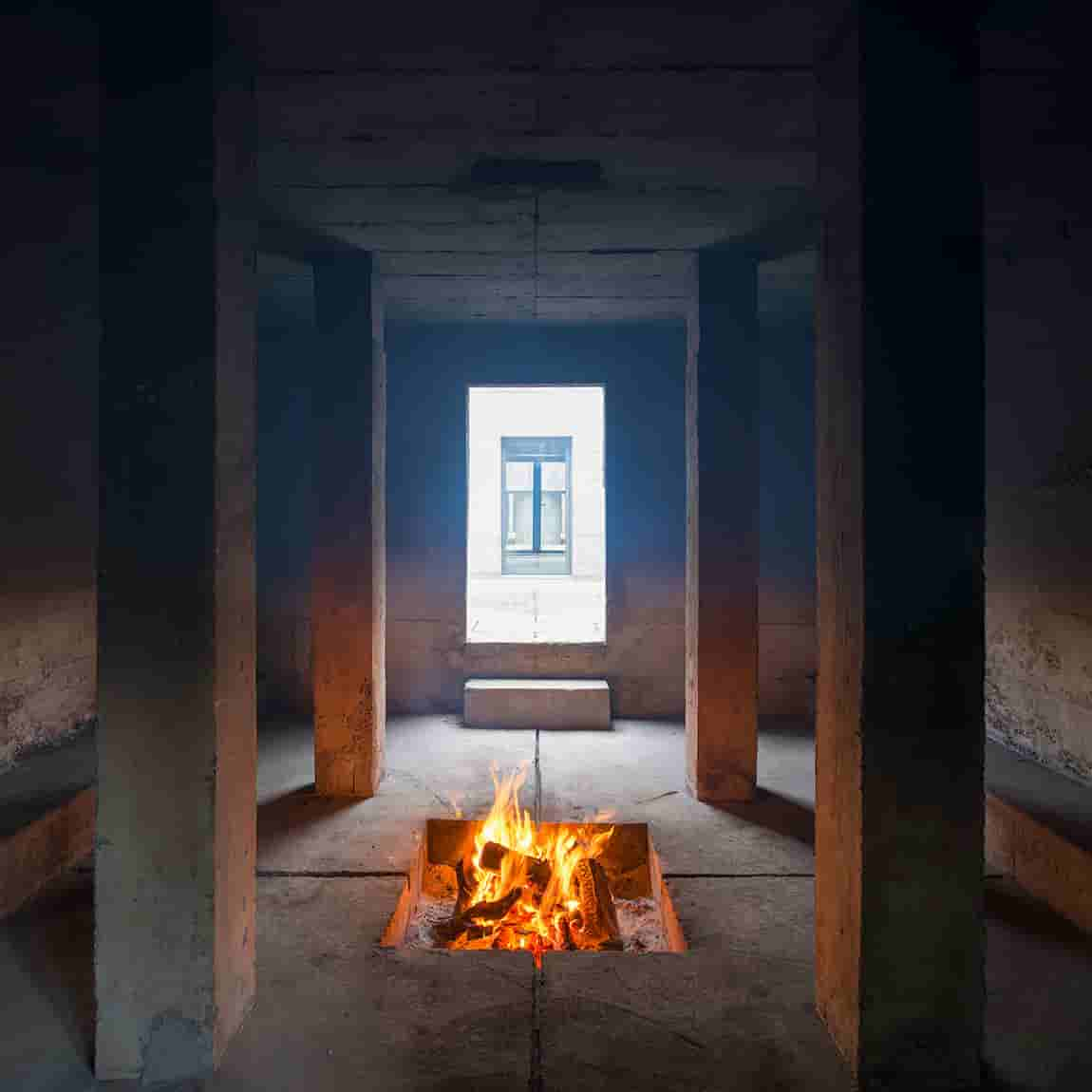
▎Not That You Would Notice It If You Happened To Visit…
The twelve concrete buildings that make up the outer square and inner cross parts of the structure come in different shapes – some are rectangular, others L-shaped, and some are T-shaped – not that you would notice it if you happened to visit, separated as they are only by “visible seismic joints”, which is to say very small gaps. They also differ in height, with those on the western side being two-storey and those on the east single-storey in order to maintain a consistent roof level across the sloping terrain. Cast on site using wooden formwork, the richly textured facades make it even harder to distinguish between individual buildings as well as provide a complementary backdrop for the indigenous vegetation in the courtyards and surrounding areas.
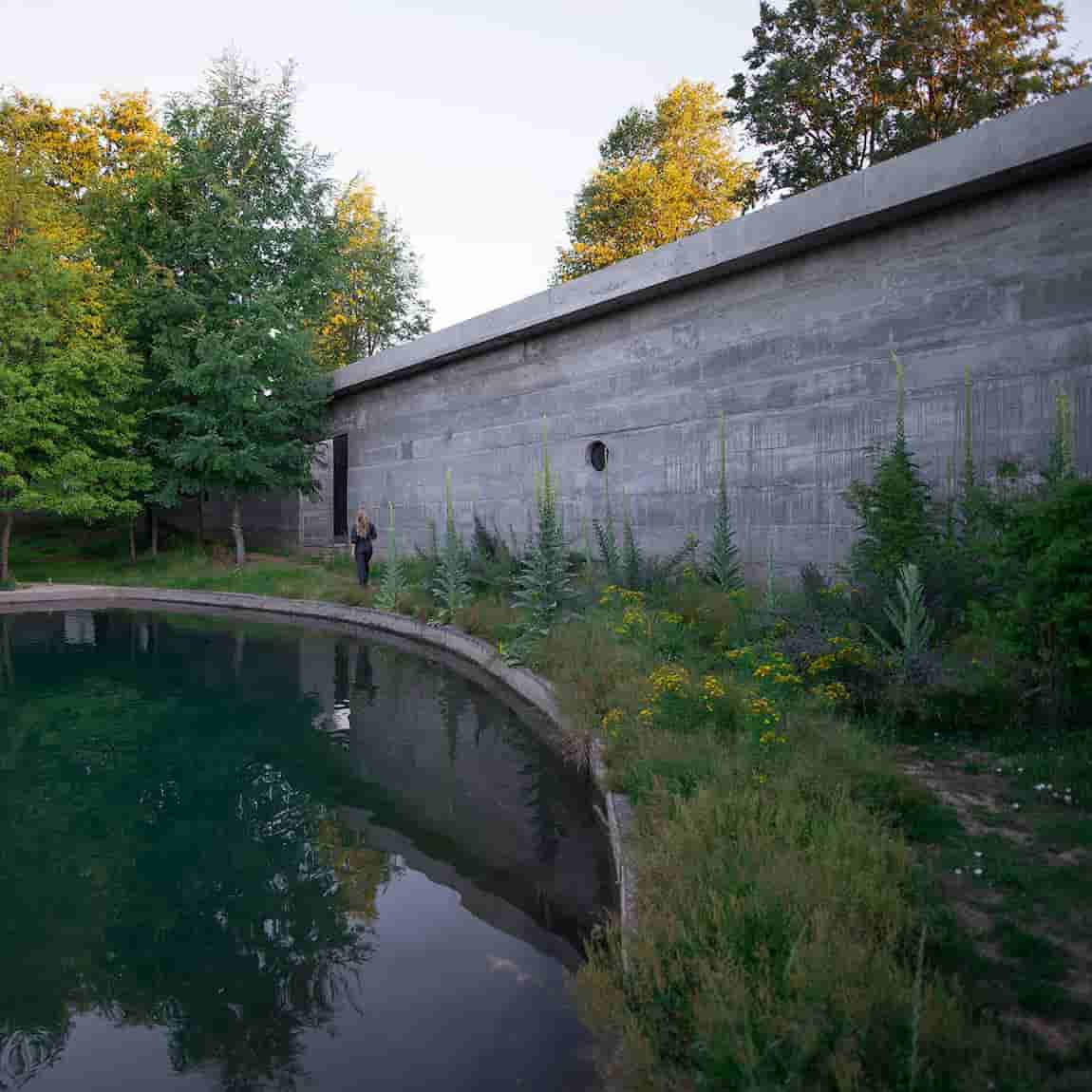
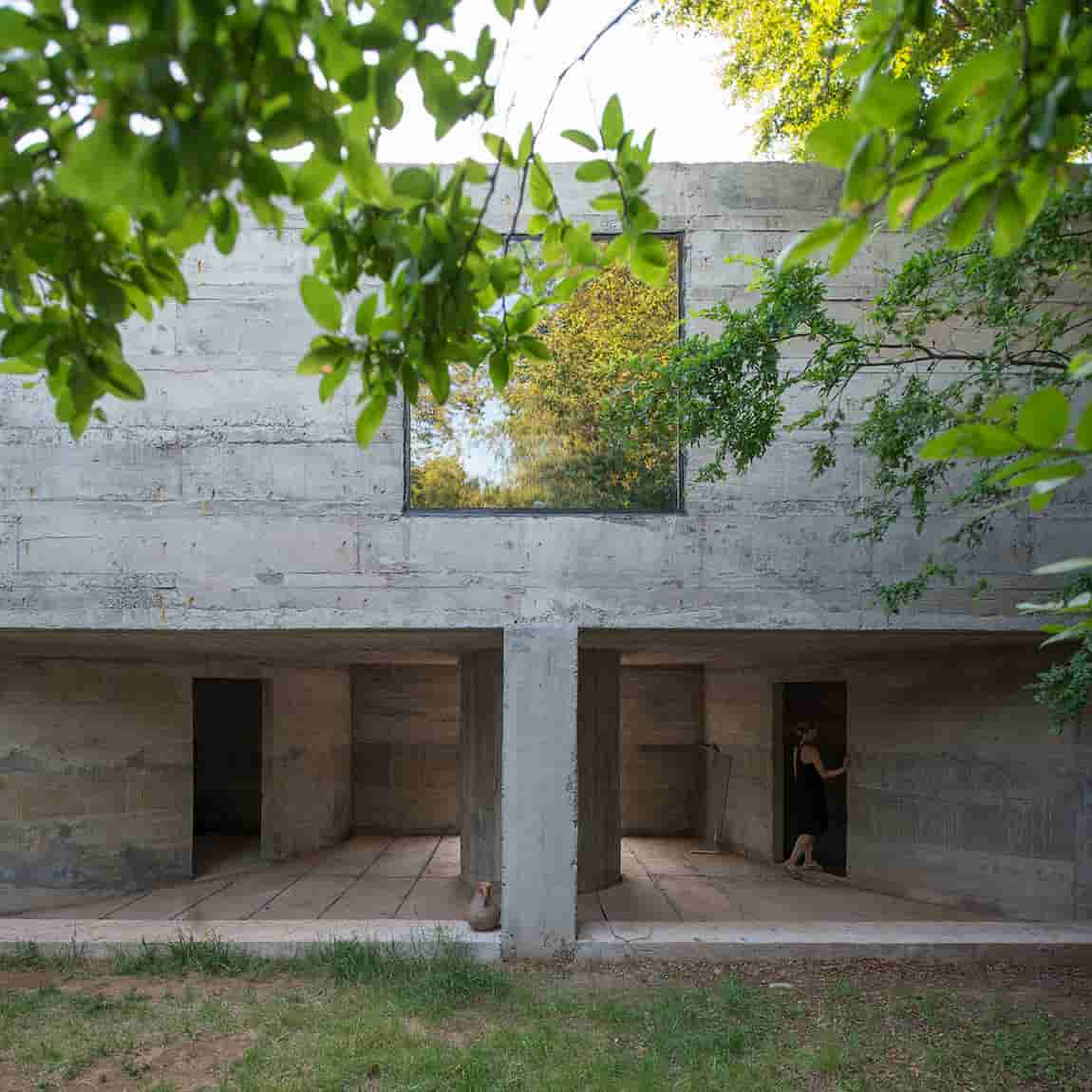
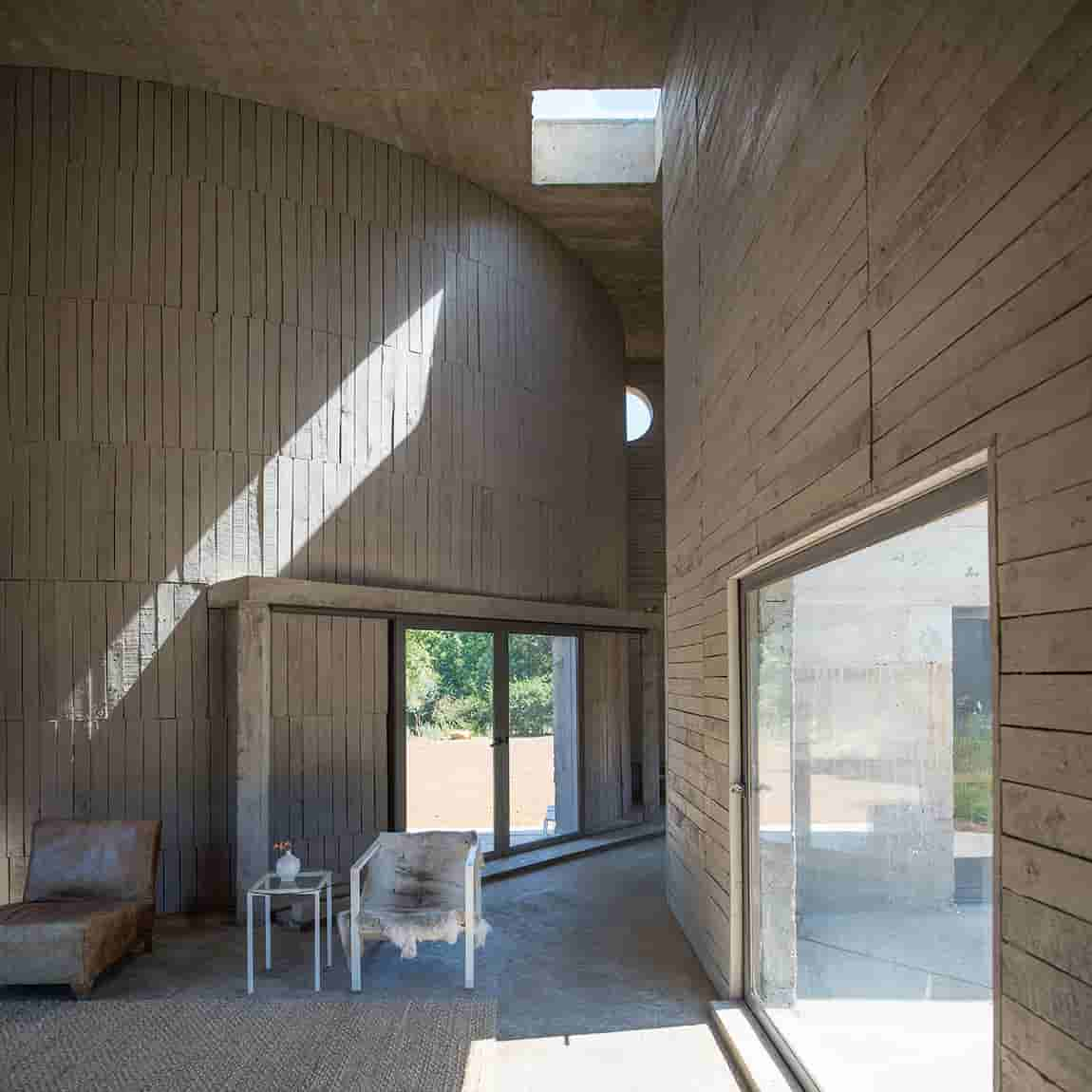
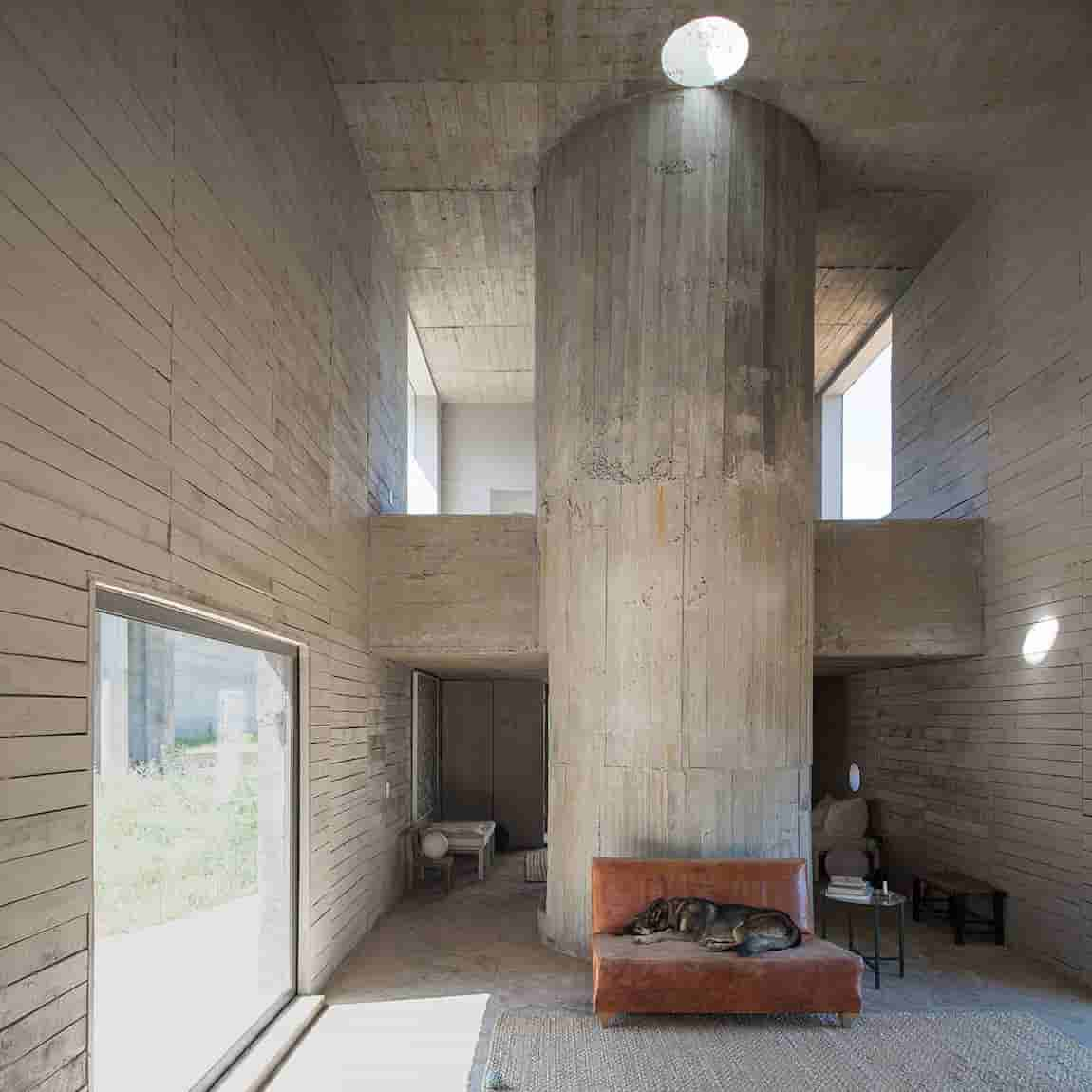
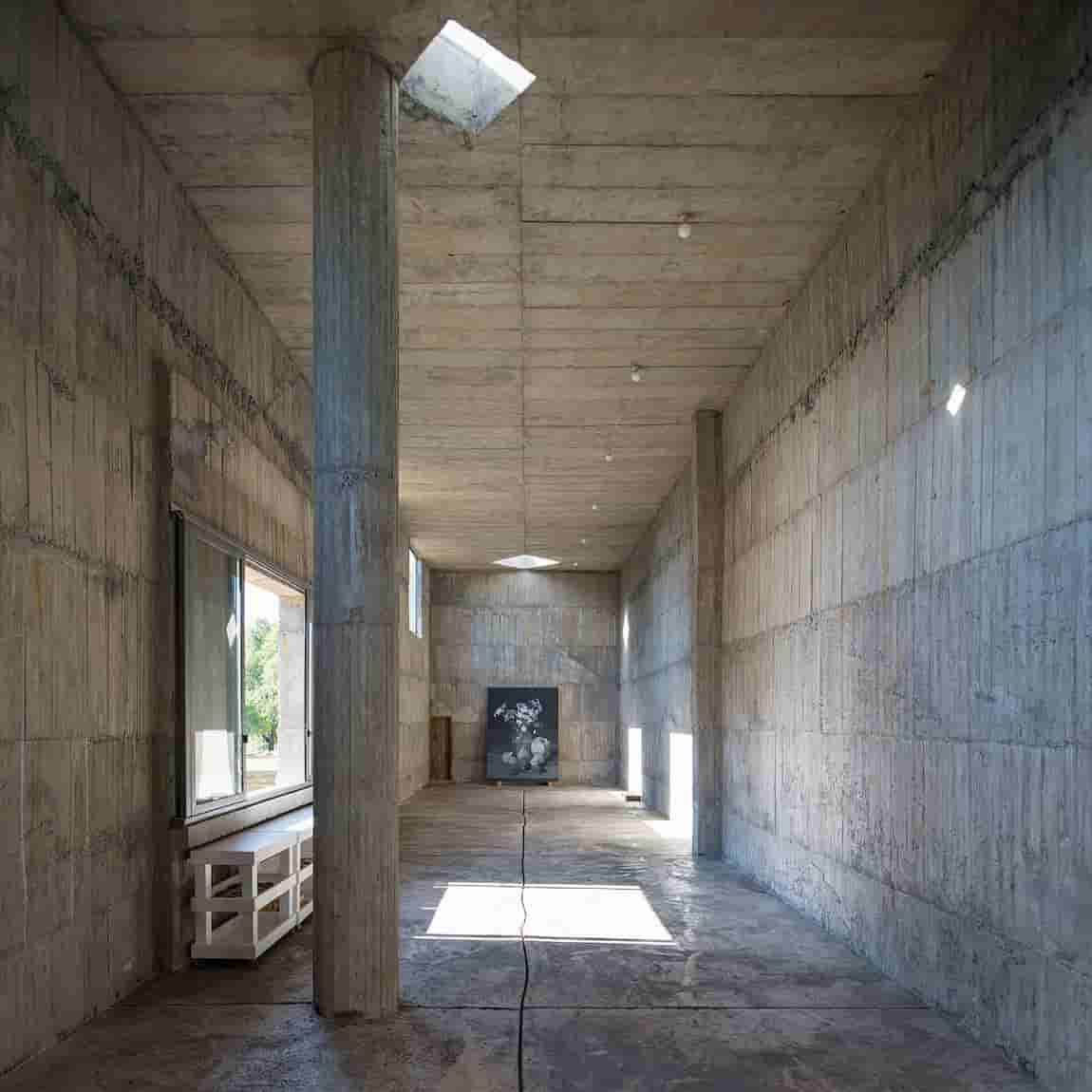
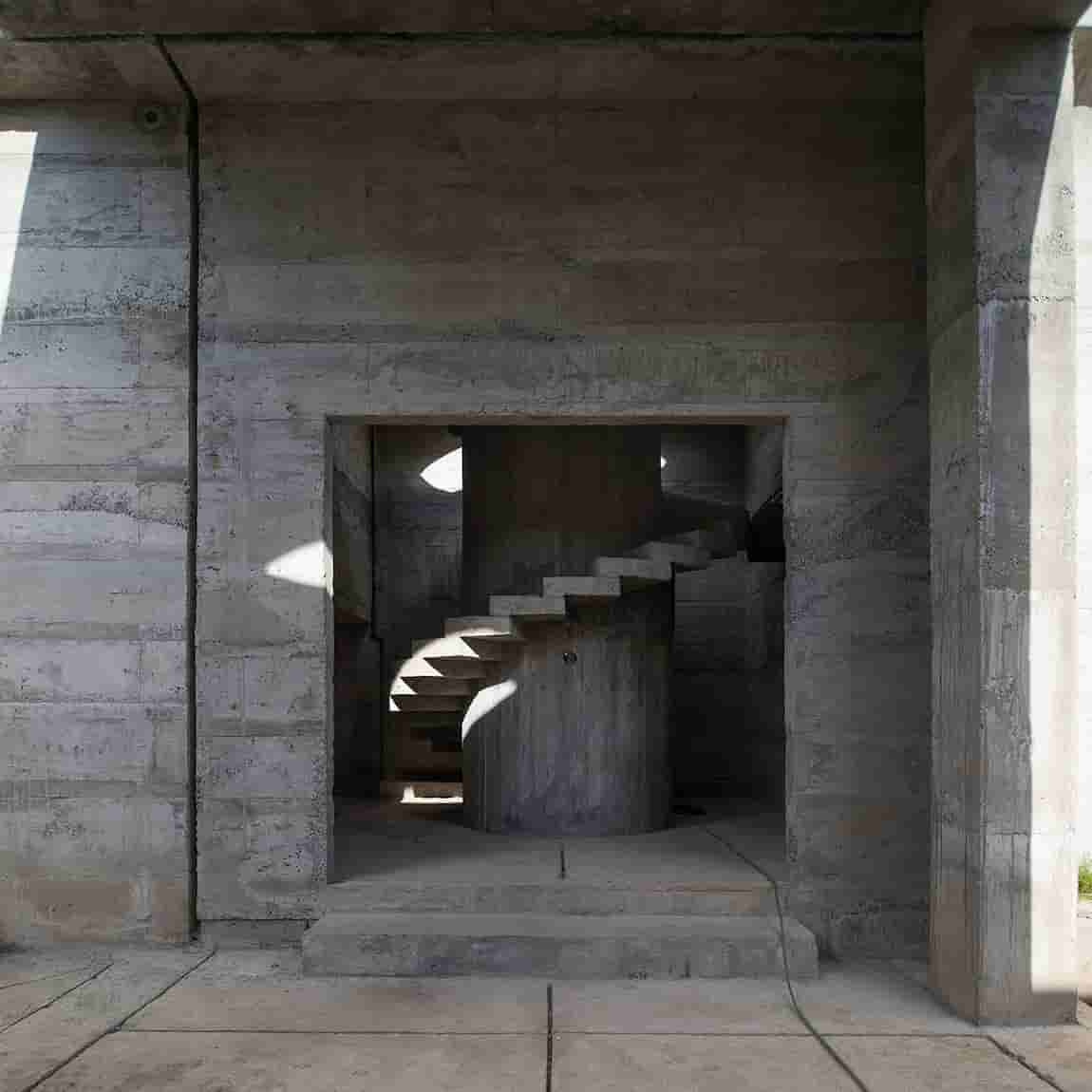
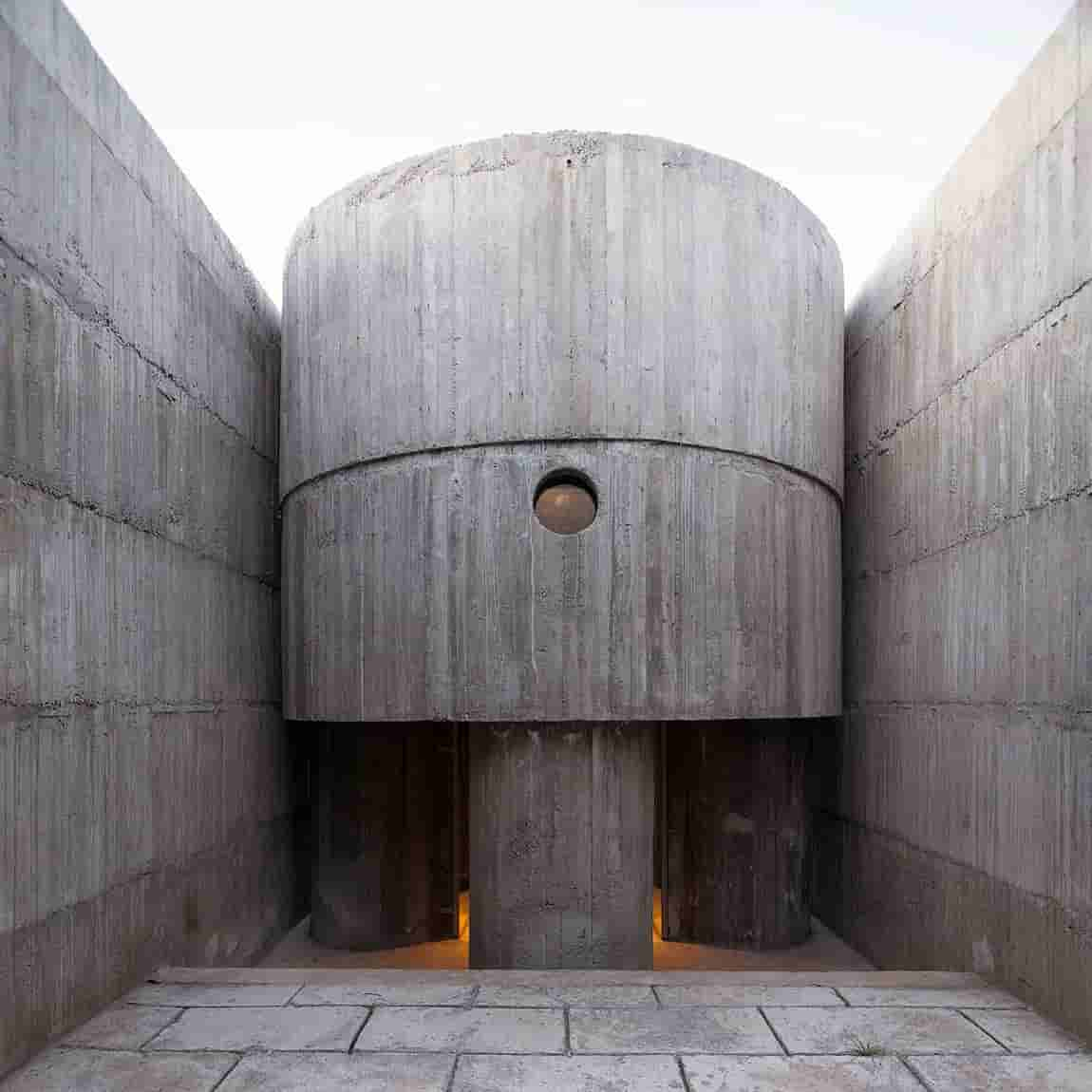
▎Every Room Has Its Own Distinct Spatial Quality
Punctuated by square and circular windows and skylights that vary in size, number and placement, every room has its own distinct spatial quality, from airy, light-filled spaces, to imposing double-height chambers, to darker, more introverted areas. Interestingly, both the living quarters and the work/exhibition spaces include all kinds of rooms, an indication of the porous boundaries between private and professional life when it comes to creative couples that live and work together.
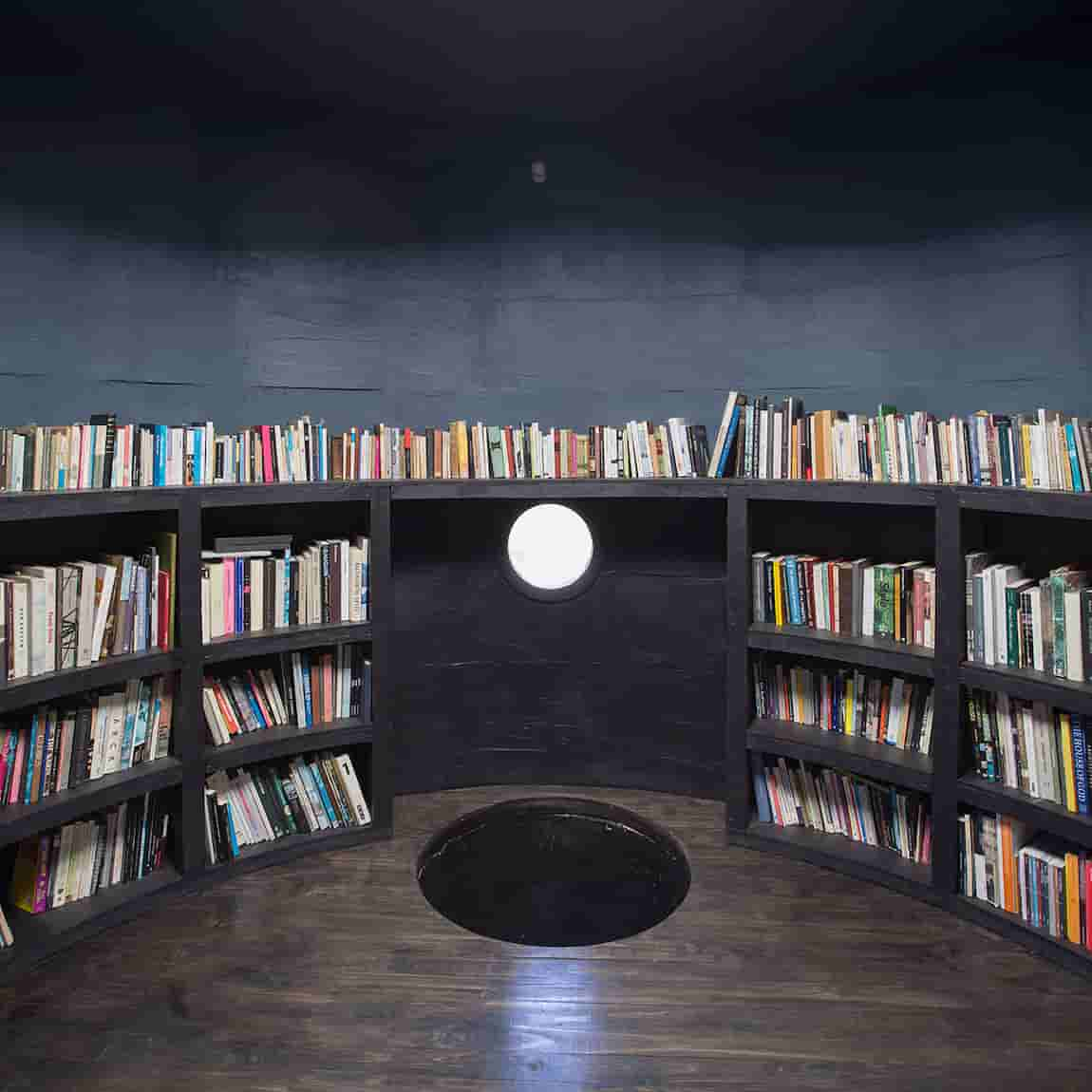
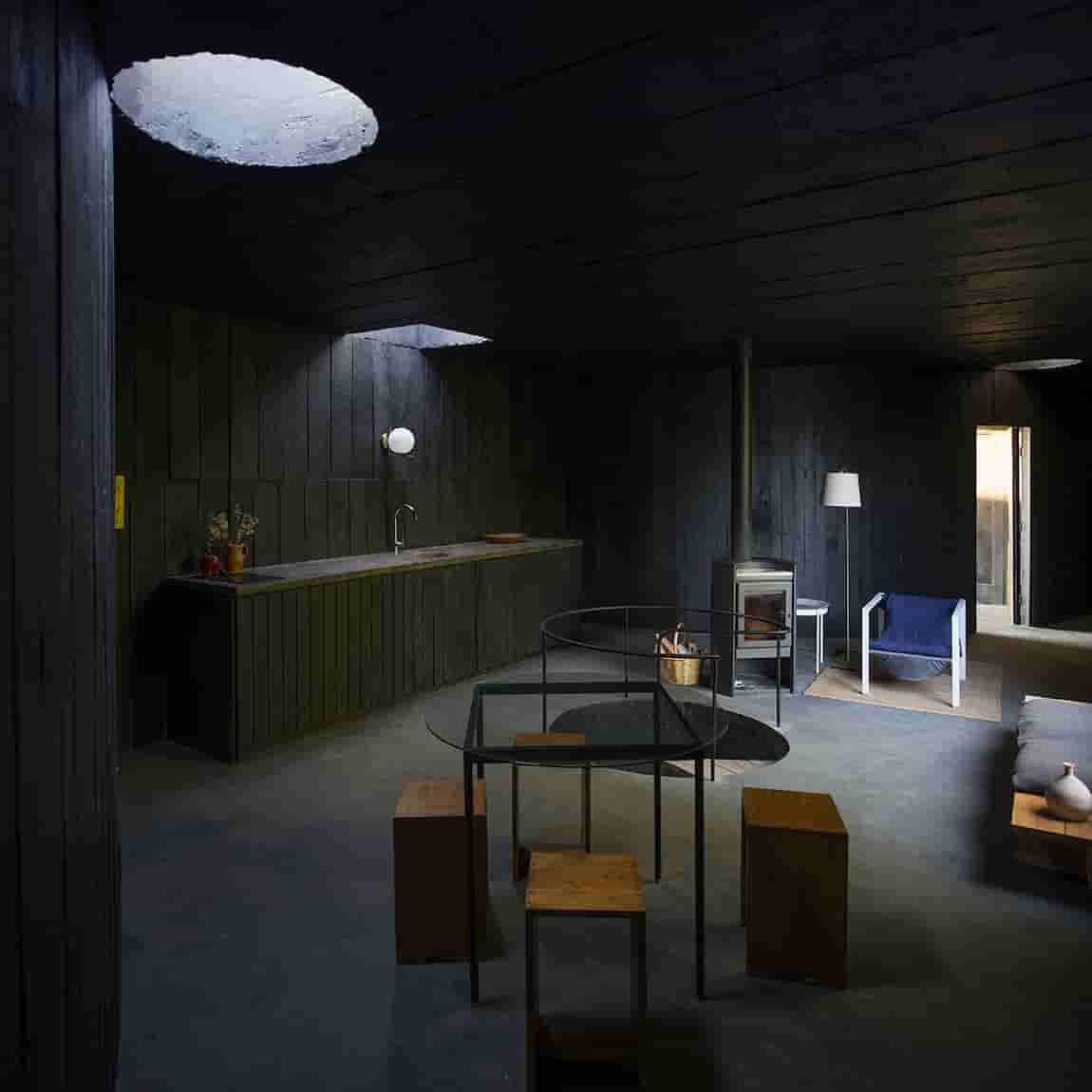
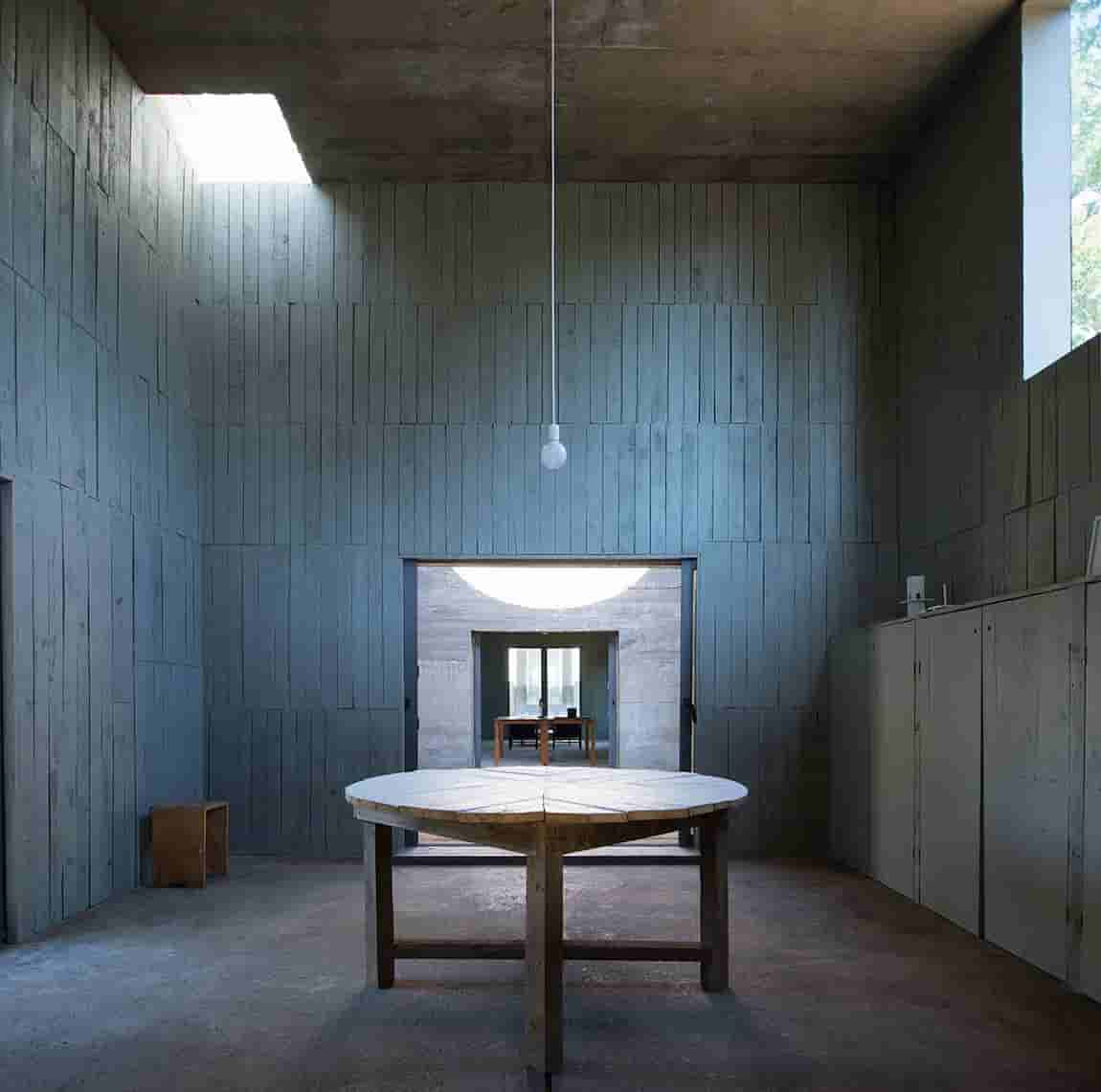
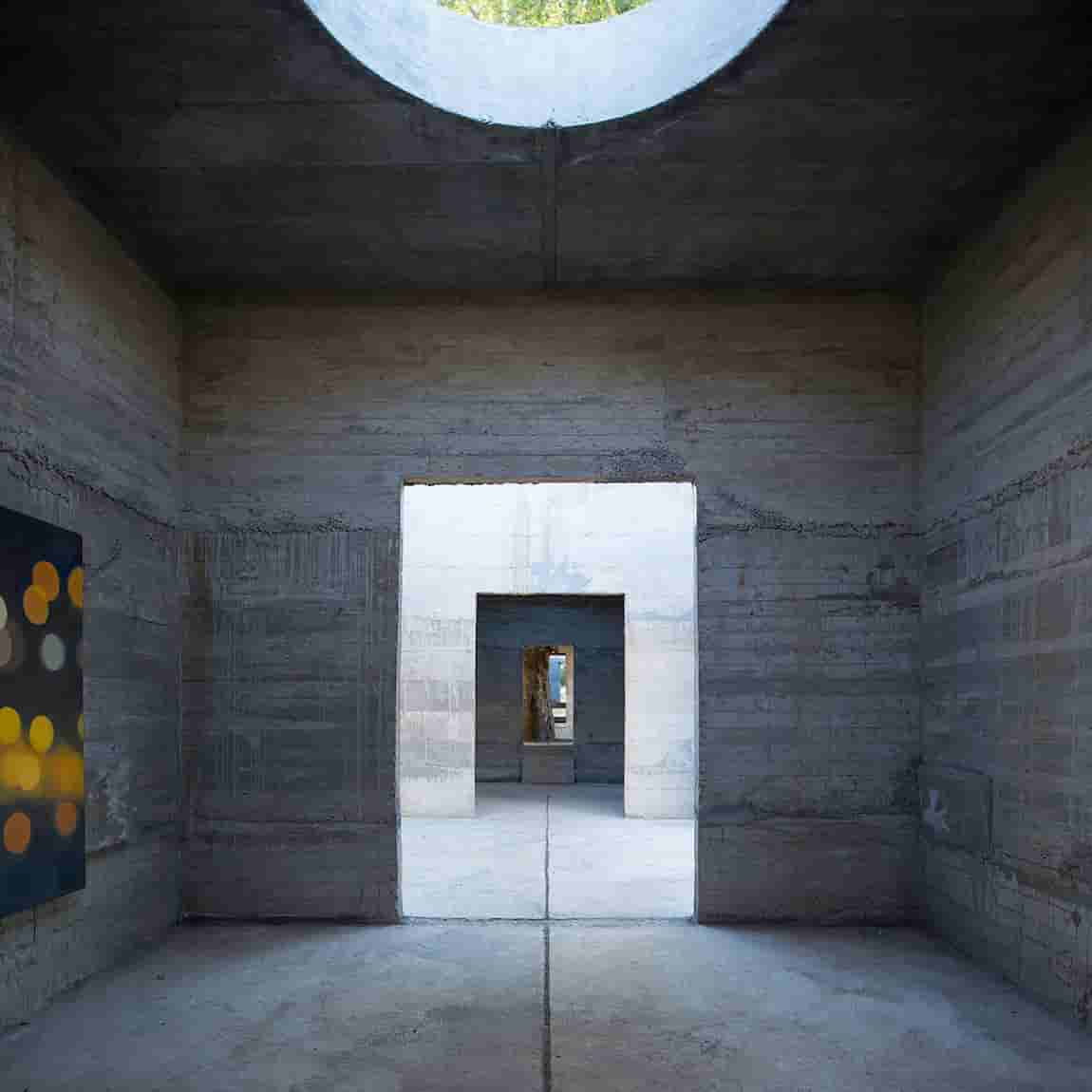
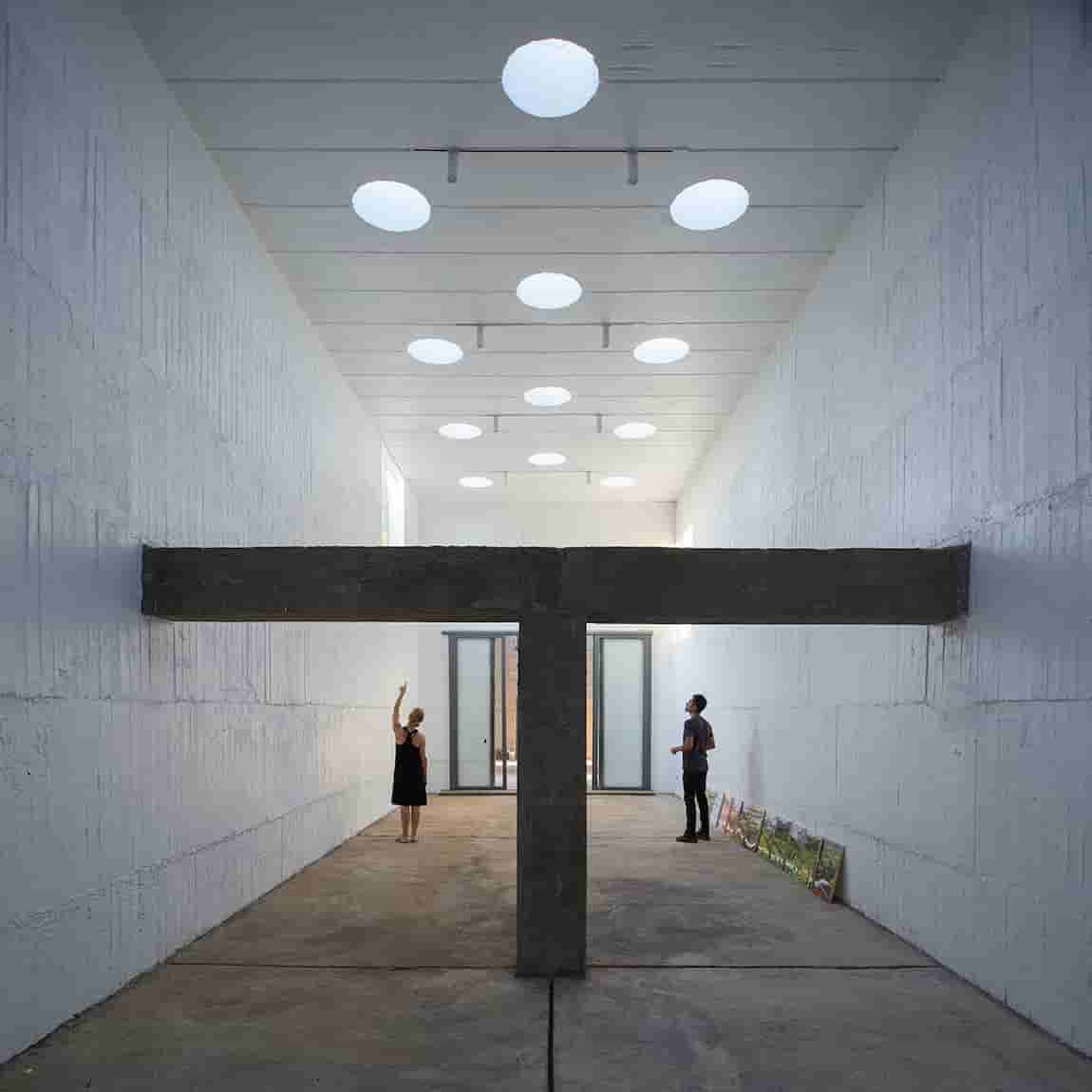
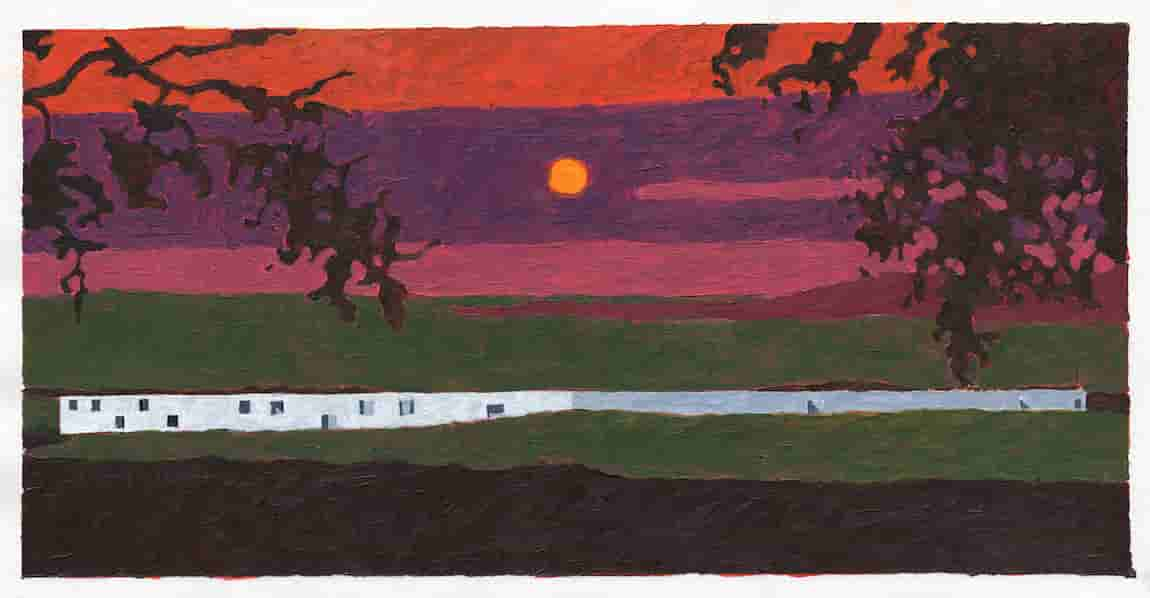
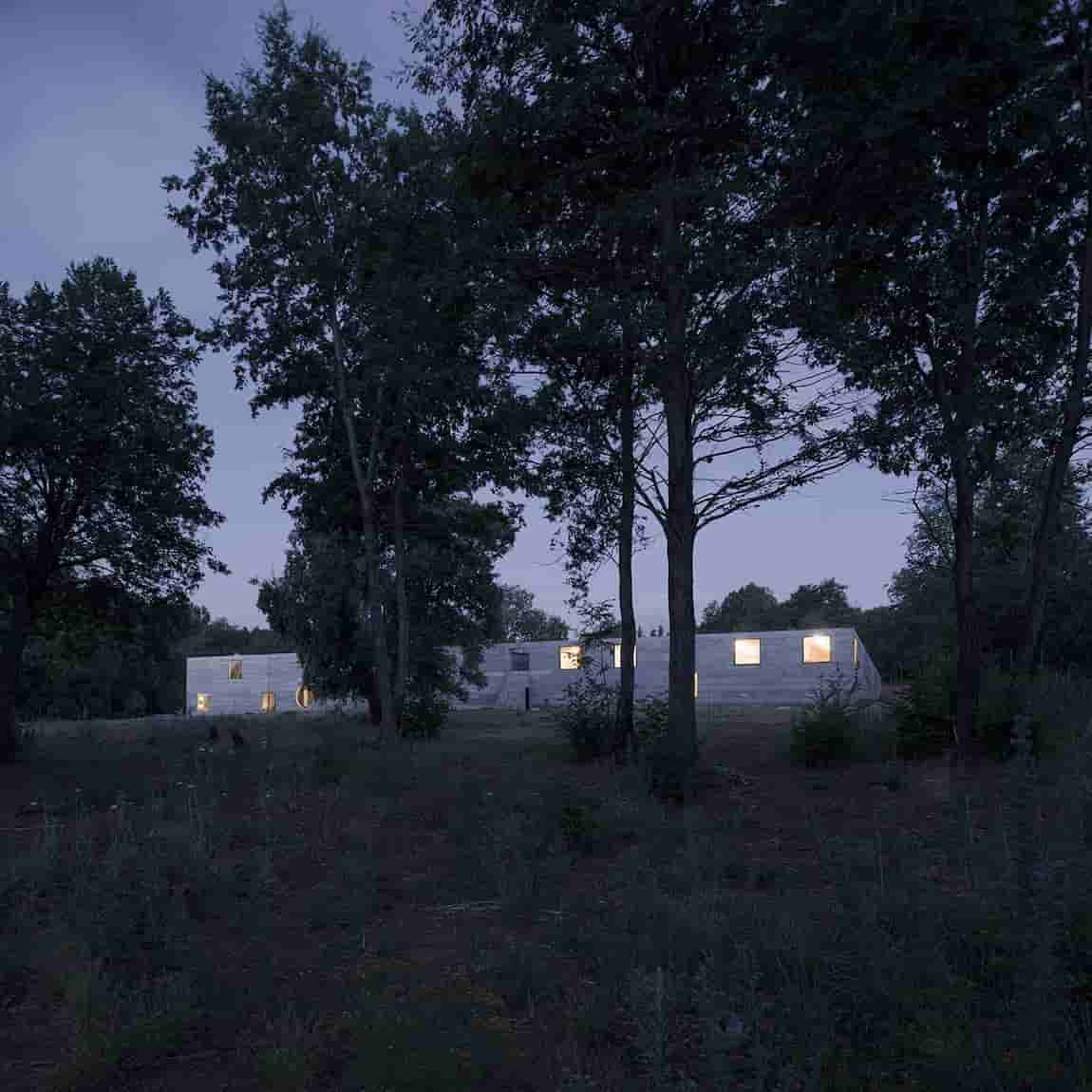
Om onvervangbaar te zijn, moet je altijd anders zijn.
Er zijn fascinerende beelden hier, en de fascinerende dag van samen! xo
─────────────────────────────────────────────────────
Per essere insostituibili bisogna sempre essere diverso.
Ci sono immagini affascinanti qui, e l’affascinante giornata di insieme! xo KanikaChic
